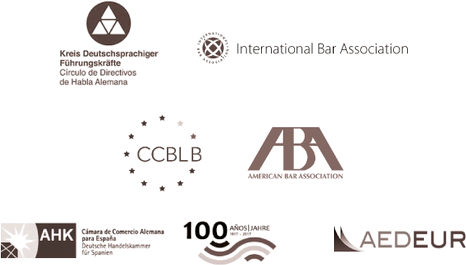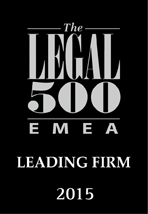
“Supreme” light on the shoemaker’s children…
02/10/17
Stick to your guns
In October 2016 we commented some fines that the Spanish national competition authority (CNMC) had imposed on legal Bar associations, because the decisions raised some fundamental issues. It is for the CNMC’s Council to sort out the terminological mess of fee criteria and fee guidelines when it decides the pending case S/DC/0587/16 – COSTAS BANKIA… While we stood in awe awaiting this decision, the Spanish Supreme Court published its judgement of 27 July 2017, which – in all due respect 😉 – casts further… light (?) on how competition law applies to professional associations.
This judgement concerns a decision of 25 July 2012 by which the Catalan regional competition authority (Autoritat Catalana de la Competència, ACCo) had fined the Barcelona chamber of real-estate agents. The latter had (i) adopted as binding rules some decisions by its board that infringed competition law; and (ii) recommended prices by publishing a list of fees. The fine was 70,000 Euros for the first infringement and 50,000 Euros for the second one.
On 8 January 2015 the Catalan High Court (Tribunal Superior de Justicia de Cataluña) annulled ACCo’s decision on the grounds that the chamber was fined for having adopted binding rules in its role as a legally empowered public administration (second grounds of the judgement). The High Court held that ACCo should have made its case before the administrative courts, since Article 12(3) of the Spanishg Competition Act (Ley de Defensa de la Competencia, LDC) empowered competition authorities to challenge before such courts decisions and general provisions adopted by public administrations where such acts impair competition in the market. Conversely, the High Court held, ACCo may not itself act as a supervisor of another public administration that acts with a legal mandate.
Now, the Supreme Court has partially annulled the regional High Court’s judgement and upheld ACCo’s decision as far as the second infringement (i.e., the fee list) is concerned. The Supreme Court draws on case law that distinguishes between decisions taken as a public authority (ius imperii) and an administration acting like any other player on a given market. The Supreme Court holds that drawing this distinction is no impediment for a global application of the LDC, contrary to what some scholars thought. On the contrary, says the Supreme Court: this distinction makes it clear, who is competent to assess any given actions by the chamber. Where the chamber acts iure imperii, only the courts may apply the LDC. Conversely, where a chamber acts on any other grounds, the competition authorities may directly apply the LDC themselves.
After this “clarification” (as the Court of Justice elegantly described its Intel judgment) we ask ourselves whether the Supreme Court’s distinction is merely formal or material. In other words, is it enough for a professional chamber to frame decisions of its organs into general provisions or to claim to be implementing a legal mandate to stop competition authorities from opening proceedings? Or must one rather check the content of a general provision to assess whether the professional chamber really sticks to the legal mandate for acting as a public administration? Let us even go a step further: what should happen when the alleged obstacle to competition are statements by a chamber official or publications on the chamber’s website and these, in turn, relied on general provisions which the chamber adopted by virtue of its ius imperii?
We prophetise a learned dispute among scholars. And indeed great interest in future cases on how to apply competition law to professional chambers… Meanwhile, i’t’s still the shoemaker’s children who go barefoot.
Rating Legis SLP
T/F: +34 932 724 264
Provença, 253
08008 Barcelona
<!–
Members of:



